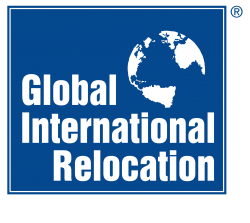Portugal has taken an important step in strengthening its labor immigration policy with the creation of the Cooperation Protocol for Regulated Labor Migration (PCMLR), also known as the “Fast Track” for immigration.
This new mechanism aims to simplify and accelerate the processes of hiring and legalizing foreign workers, while ensuring greater rigor and compliance in labor relations.
What is the PCMLR?
The PCMLR is a cooperation protocol signed between the Portuguese Government, namely the Agency for Integration, Migration and Asylum (AIMA), the Directorate-General for Consular Affairs and Portuguese Communities (DGACCP), the Institute for Employment and Vocational Training (IEFP), and the Coordination Unit for Employment and Social Solidarity Policies (UCFE/SSI), and several business confederations.

The goal is to create a preferential and regulated channel for labor migration, allowing pre-qualified companies to hire third-country nationals more quickly and predictably, while maintaining high standards of legal and social compliance.
Who can join the program?
The protocol is aimed at companies with a proven structure and solidity, that meet strict criteria, including:
- Having at least 150 employees and a significant turnover (above 25 million euros);
- Being in good standing with the Tax Authority and Social Security;
- Holding a valid and updated permanent certificate;
- Ensuring formal employment contracts compliant with Portuguese law;
- Providing decent housing conditions for foreign workers;
- Promoting social and linguistic integration, namely through Portuguese language training.
Adhering to the PCMLR represents a commitment to social and legal responsibility, not merely an administrative fast track.
How does the process work?
The mechanism operates through closer coordination between participating companies and the public authorities involved.
The process consists of several simplified steps with defined deadlines:
- Submission of the work visa application by the company, including all required documentation.
- Consular appointment within a maximum of 10 working days after submission.
- Visa decision within a maximum of 20 working days after the consular appointment.
Despite its benefits, the PCMLR also introduces new challenges for companies:
- Intensive inspection: participating companies will be subject to compliance audits by the relevant authorities.
- Housing and integration requirements: ensuring adequate housing and implementing social integration measures may be demanding, particularly in urban areas with limited availability.
- Increased responsibility: the protocol requires companies to take an active role in ensuring the legality and well-being of the workers they hire.
In short, this is a preferential pathway, but one only accessible to companies capable of fully complying with legal and ethical standards.
The Cooperation Protocol for Regulated Labor Migration (PCMLR) is an ambitious and necessary measure to modernize Portugal’s labor immigration system. It represents a balance between agility and rigor, promoting a more orderly, transparent, and humane approach to migration.
For companies and professionals operating in the field of international mobility, understanding this new mechanism is essential. And for those seeking specialized support, partnering with an experienced team like Global International Relocation can make all the difference, ensuring a safe, efficient transition in full compliance with the new regulations.
Contact us today to learn how this protocol can help accelerate the integration of new employees into your company, ensuring safety, efficiency, and full support at every stage.






